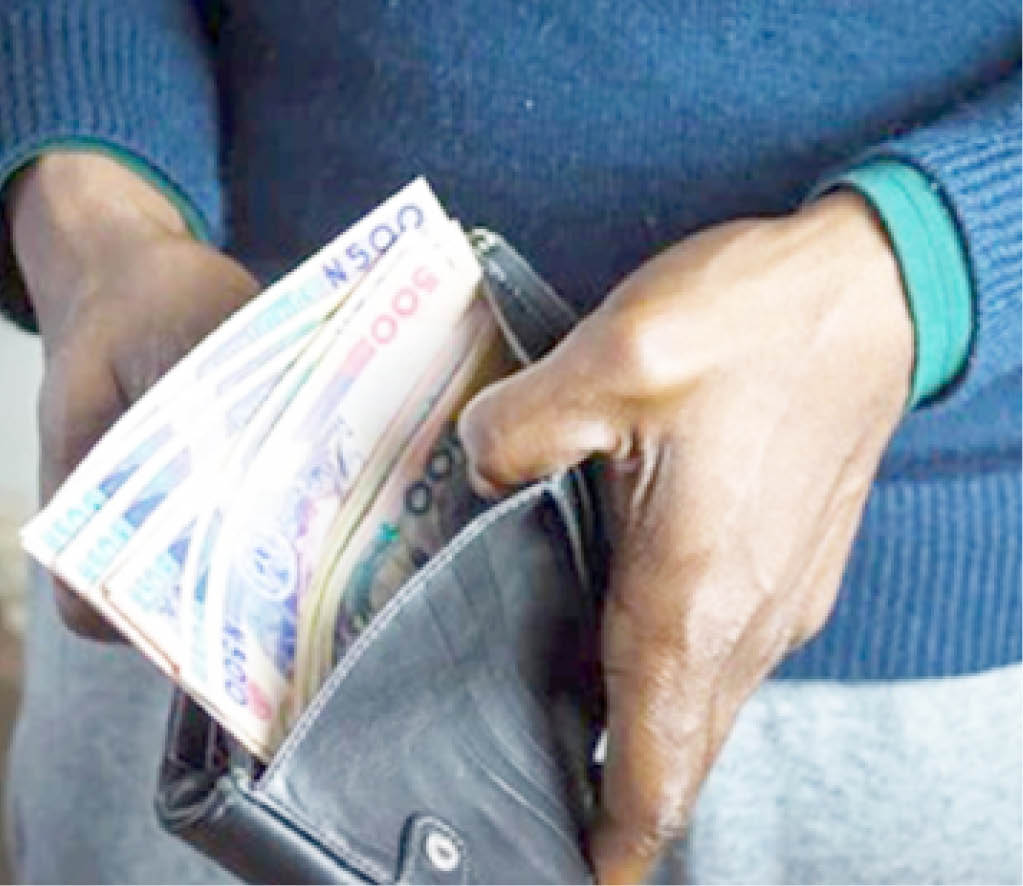The ultimate question we need to ask ourselves is whether we believe we are worthy enough as a people and as a nation, to have and to manage a currency, or if we feel too worthless to have one. One-track-minded philistinism leaves us all wretched, one way or another.
We have argued on end about what the value of our currency should be. There are two divides to the argument; some Nigerians – usually the western-educated, middle or upper-class types with considerable holdings of foreign currency investments – believe that the naira be allowed by the Nigerian government to ‘find its level’, meaning we should leave the currency to the vagaries of the market forces of demand and supply. Others – who are usually poorer with not much dollar holdings – believe that Nigeria should protect her currency and keep it strong.
- UN Assembly: No going back on mega protest — Yoruba Nation, others
- 90,000 Anambra children out of school
I have engaged in this argument for some while now and tried to also apply a historical approach, wondering why the British colonisers set our currency (Nigerian pounds and by extension the naira) at par with theirs upon departure. I have heard very enlightened people bemoan the time when the Nigerian currency was stronger that the US dollar, showing that they believe that at a time the Nigeria’s economy was probably ‘stronger’ than America’s. These group believes that at that time Nigerian economy was ‘stronger’ than the Chinese, Singaporean and South Korean economies, among others. The same people boast that we had television before France.
I’m left wondering; how? How could anyone justify that Nigerian economy was ever stronger than that of the leader of the world? How could we not see that it was a mirage? Why will anyone think that we can build anything on that illusion? So why will anyone rue the time when our currency was at par with the best in the world? What did we produce then? What do we produce now? If Ibrahim Babangida, Chu SP Okongwu, Kalu Idika Kalu, Olu Falae and co, did not come around and with the help of their IMF/World Bank friends, pushed us down the cliff from which we are yet hurtling towards the bottom, we ought to have ‘borrowed ourselves some sense’ as we say in the streets, shouldn’t we?
However, if the group of bemoaners, who are stuck in reminiscent nostalgia could be regarded as left-leaning romantics, the other guys on the right (the middle and upper-class liberals) cannot also explain their position from this historical perspective. And they have not bothered. Actually, they don’t think they owe anyone any explanation. They just want the naira to float… perhaps into oblivion… and/or to probably disappear altogether. Not for them any patriotic idea around why nations need currencies and how nations struggle to keep theirs strong. This category of people is fixated on what the textbook says the situation should be. They abhor any complicated explanation of the economy and cannot see the endgame to the strategy they propose. In fact, they have always been around, and in 1986, they supported the first devaluation which was premised on the theory that Nigeria’s exports will be cheaper. Three things happened; many Nigerians went into export – of commodities of all sorts – and many got their fingers burnt as their products were rejected and devalued for failure to meet standards. Secondly, some were duped by foreign importers as well. Many committed suicide, while gap-toothed (like me) IBB and his friends had a good time in Dodan Barracks and later, Aso Villa. Apart from the export fiascos, life became very difficult for too many Nigerians who could no longer afford the basics of life; their lives had been devalued. Thirdly, and perhaps more importantly, none of our economists then as now, pointed to the Marshall-Lerner principle in economics, that says devaluation will only work in a country whose exports are positively price-elastic. This means that for such countries, the devaluation of their currency should spur importers to buy more of their exports. Since Nigeria’s export is dominated by crude oil, devaluation did not work for us at all, and the mad rush into commodity exports, was a disaster. At best, large conglomerates, who understand standards and are owned by foreigners, took advantage to an extent while the majority of Nigerians faced even deeper penury. It is instructive to note, that since 1986, we have only ever devalued, so to speak. It’s a one-way trip to Armageddon. This is not to say, however, that we should have kept Naira at par with the dollar. The question is; where should we have stopped? Or better still, where are we gonna stop?
The questions for guys in the liberal divide who say we should float our currency till it finds its ‘true value’ are; Why did the Brits leave our currency strong? Why did it take a Babangida, in 1985 to buy into the liberal policy of ‘market forces, leading to the first devaluation of the naira? Why have we only devalued the naira since then? If we float the currency and allow it to drift based on demand and supply, should we just allow the naira to drift away forever? If the naira drifts too far and panic sets in at some point (as it is about to or has it has in the last few days) will it not be futile at that point to then try and put in any controls? What is the point-of-no-return for the naira? Imagine a car left on a cliff with no brakes and no driver? Do we understand that perception, self-fulfilling prophecies, confidence, patriotism/cynicism, makes up 70 per cent of the value of a currency, especially for a country like ours? Do the liberal guys consider that we don’t produce anything of real value and we have together not hunkered down to building real productive capacity by replicating technology like others did? Can they validly say it’s none of their business if this economy and nation goes to the dogs? Do they think they will bear no brunt from a catastrophe? Beyond academics and trying to look good for the camera or to look and sound educated, are the liberal people telling us we don’t need a currency? Are they ready for the consequences even if they have all their wealth stashed in dollars? In the same vein, liberal economists egged us all on into massive debts, citing meaningless debt-to-GDP ratios.
I must also recall that in President Babangida’s recent interviews, he glibly listed the acceptance of liberal economics, and market-forces as its underpinning, as one of the fait accompli, another irreducible minimum that Nigeria signed up to in the military era – under his government. Market forces-driven economy is way up there alongside the unity of Nigeria, he said. I know many people who will disagree vehemently with IBB. I also wondered as he spoke, what knowledge they had then that made them conclude that that was the way forward for this nation. Do they have conscience? If so, do they enjoy the result of their decisions today?

 Join Daily Trust WhatsApp Community For Quick Access To News and Happenings Around You.
Join Daily Trust WhatsApp Community For Quick Access To News and Happenings Around You.


